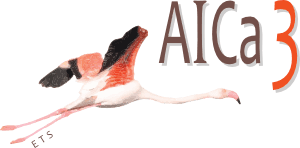Calpainopathy (limb-girdle muscular dystrophy type 2A, LGMD2A) is a recessive muscular disorder caused by deficiency in the calcium-dependent cysteine protease calpain 3. To date, no treatment exists for this disease. We evaluated the potential of recombinant adeno-associated virus (rAAV) vectors for gene therapy in a murine model for LGMD2A. To drive the expression of calpain 3, we used rAAV2/1 pseudotyped vectors and muscle-specific promoters to avoid calpain 3 cell toxicity. We report efficient and stable transgene expression in muscle with restoration of the proteolytic activity and without evident toxicity. In addition, calpain 3 was correctly targeted to the sarcomere. Moreover, its presence resulted in improvement of the histological features and in therapeutic efficacy at the physiological levels, including correction of atrophy and full rescue of the contractile force deficits. Our results establish the feasibility of AAV-mediated calpain 3 gene transfer as a therapeutic approach.
